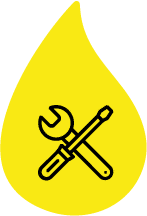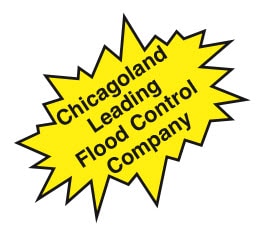Frozen Pipes in Chicago: What You Should Know
Depending on how insulated or old your home plumbing is, pipes can freeze over quickly and quietly and burst at a moment’s notice.
These are one of the few plumbing situations where the problem can go from non-existent to a frozen nightmare in an incredibly short amount of time. For this reason, it’s important not just to know what to do when the pipes burst—call one of your local Chicago plumbers at Parks’ Plumbing & Sewer, Inc. immediately—but how to prevent them from getting to that point in the first place.
Frozen pipe prevention tips
Insulate Your Pipes
Applying heat tape or thermostat-controlled heat cables around any of your pipes that are exposed can save their lives and save you a boatload of cash and a headache in the event of cold weather.
Regulate the home temperature carefully
The advised minimal temperature to keep home piping systems intact and frost free is around 55 degrees Fahrenheit.
Share the Love
If you open up cabinet doors under sinks and in storage areas, you’ll allow heat to trickle in and circulate around pipes that may be uninsulated. You can even let a small stream of hot and cold water drip overnight—but be careful. If that water drains down a drain that’s open to the cold in any way, the line runs the risk of freezing.
Services related to frozen pipes We offer
One of the first and most common signs of any plumbing problem is a leak. We’ll sniff ‘em out and patch ‘em up.
It could be a cracked case, a missing part, or an issue with the piping down the line. Whatever it is, we’ll figure out the cause, and we’ll take care of the problem.
The back or front yard doesn’t always drain like nature intended, but that doesn’t mean it has to stay that way.













